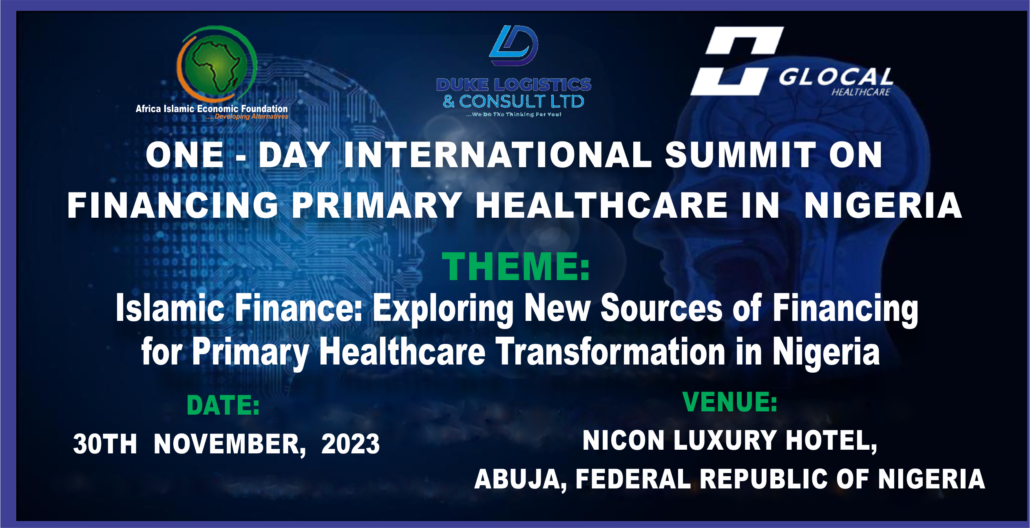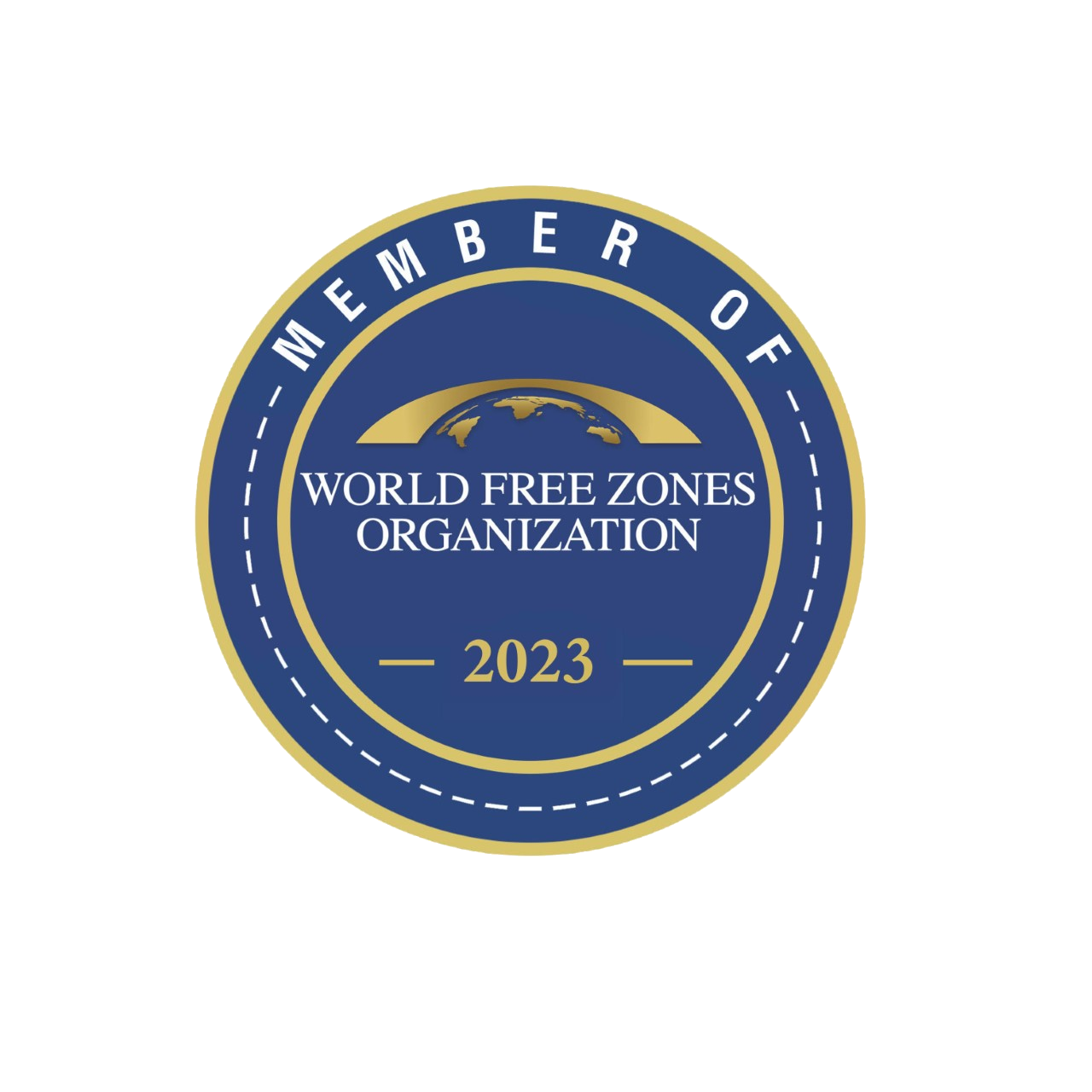OVERVIEW | THE EVENT| SPEAKERS | ORGANIZERS | CONTACT
THE EVENT
The theme of the event, Islamic Finance: Exploring New Sources of Financing for Primary Healthcare Transformation in Nigeria, therefore, represents a significant milestone in the intersection of healthcare, technology and faith-based financial principles in one of Africa’s most populous and diverse nations in its quest to improve healthcare access and quality. The event is expected to provide a platform for experts, policymakers, financiers and stakeholders to share best practices, successful case studies, and practical strategies for implementing digital healthcare solutions to catalyze the transformation of Nigeria’s primary healthcare landscape. Furthermore, it will foster collaboration and partnerships among stakeholders from the healthcare, Islamic finance, technology sectors and explore innovative financing solutions rooted in Islamic finance principles. Islamic finance, with its strong emphasis on ethical and inclusive financial practices offers a potentially untapped reservoir of capital that can be harnessed to bridge the healthcare financing gap in Nigeria.
One of the key focal points of the event will be the role of digital healthcare in transforming the healthcare sector. The event will showcase how digital technologies can enhance healthcare delivery, improve access to medical services, and increase efficiency in patient care. Discussions may include topics such as telemedicine, health apps, electronic health records, and other digital solutions that can revolutionize healthcare in Nigeria.
The event is not just a gathering of experts but a commitment to actionable change. By merging the principles of Islamic finance with the healthcare domain, the event aims to catalyze a positive transformation that resonates across all the 37 States of Nigeria, including the FCT. The ultimate goal is to ensure that every individual, regardless of his or her socio-economic background, has access to quality primary healthcare services, thus contributing to healthier lives and the achievement of SDG No. 3 in the Federal Republic of Nigeria.
Aims and Objectives:
- To explore innovative healthcare financing models that leverage Islamic finance instruments such as sukuk (Islamic bonds), waqf (endowments), and takaful (Islamic insurance), etc. in providing sustainable and long-term financing for primary healthcare transformation. These instruments can be tailored to suit the healthcare sector’s specific needs, fostering sustainable funding mechanisms.
- Foster collaboration between the various states of the federation to share best practices and experiences in leveraging Islamic finance for healthcare projects.
- International Experience: Other countries with substantial Muslim populations, such as Malaysia and Saudi Arabia, have successfully utilized Islamic finance to support their healthcare sectors. Nigeria can draw lessons and insights from these international experiences to inform its own healthcare transformation.
- Partnerships and Collaboration: Collaboration is central to overcoming the complex challenges in healthcare and finance. The event provides a platform for stakeholders, including government agencies and officials, financial institutions, investors, healthcare service providers and professionals, to catalyze investments in primary healthcare infrastructure and services. Such partnerships can help design and implement effective Islamic finance-driven healthcare projects.
- Identify policy and regulatory reforms necessary to create an enabling environment for Islamic finance solutions in the healthcare sector.
Topics and Agenda:
The Summit would consist of various sessions covering different aspects related to Islamic finance, healthcare, and digital transformation. Some potential topics to explore would include:
Opening Session: – Welcome remarks by distinguished guests and organizers.
Keynote address would highlight the importance of primary healthcare and the role of Islamic finance in its transformation.
Panel Discussions: –
Panel 1: Overview of the Nigerian healthcare system and challenges in primary healthcare. Discussions would be centered on the entire healthcare system of the Federal Republic of Nigeria for a good understanding of the Nigerian healthcare system and the challenges specific to primary healthcare.
Panel 2: Islamic Finance Instruments for Healthcare Financing: Would explore Sharia-compliant financial products and mechanisms that can be leveraged to fund primary healthcare projects.
Panel 3: Public-Private Partnerships in Healthcare: Would examine successful case studies of collaborations between Islamic financial institutions, governments, and healthcare providers.
Panel 4: Leveraging Digital Technology for Primary Healthcare in Nigeria: Would discuss the current challenges in primary healthcare in Nigeria and how digital technology can address them. – Exploration of successful case studies and best practices
Panel 5: Regulatory and Policy Reforms: Would highlight the need for regulatory frameworks that enable Islamic finance solutions in healthcare and discussing necessary policy reforms.
Panel 6: The Health Policy (2019) of the Islamic Development Bank and the OIC Strategic Health Program of Action (SHPA) 2014-2023, the P5P and 10YS. Would discuss the health policies and strategies of the Islamic Development Bank and the Organization of the Islamic Conference (OIC) and how Nigeria can leverage on them to revamp its health sector.
Workshops and Roundtable Discussions: – Workshop 1: Structuring Islamic Healthcare Financing Projects: Providing practical insights into structuring Sharia-compliant financing for primary healthcare initiatives
Roundtable Discussions: States-Specific Challenges and Solutions: Facilitating focused discussions among participants and delegates from the 37 States of the Federation, including Abuja, to address specific challenges and share solutions.
Acknowledgment of participants and speakers – Invitation for continued collaboration and follow-up activities
Expected Outcomes:
- Enhanced understanding of how Islamic finance can be utilized to transform primary healthcare systems in the Federal Republic of Nigeria.
- Identification of potential financing sources and mechanisms to bridge the healthcare funding gap.
- Formation of strategic partnerships between Islamic financial institutions, investors, healthcare providers, and government agencies to facilitate investments in primary healthcare projects.
- Development of a roadmap for policy and regulatory reforms required to create an enabling environment for Islamic finance solutions in the healthcare sector, which will ultimately pave the way for sustainable and inclusive healthcare systems in the Federal Republic of Nigeria by harnessing the power of Islamic finance.
- Creation of an action plan for implementing recommended solutions and driving primary healthcare infrastructure development in Africa.


